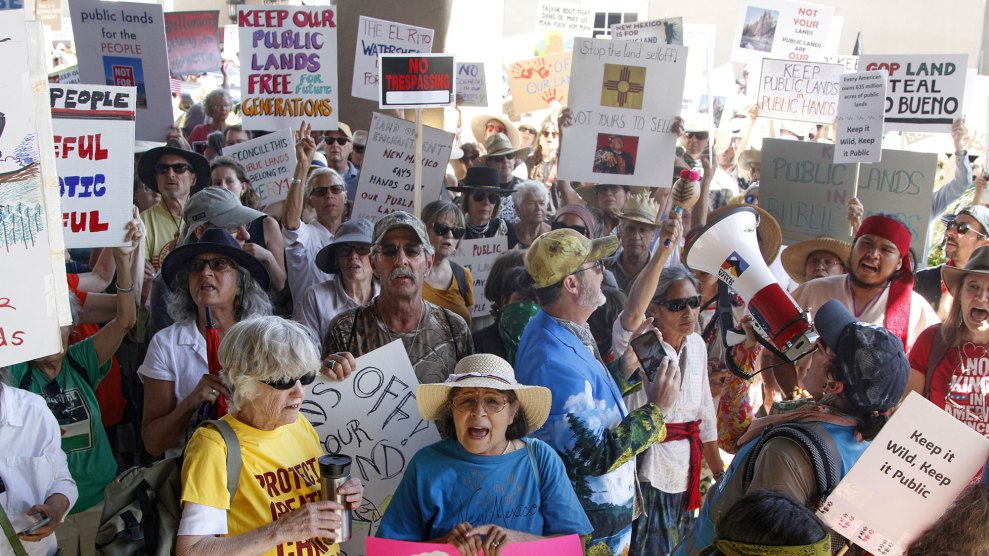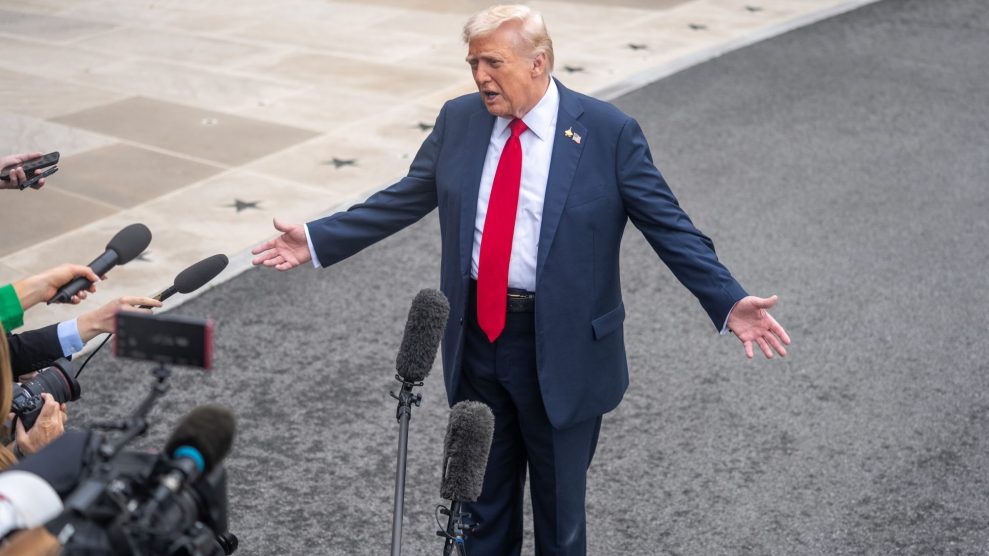President and Laura Bush attended an event in Jerusalem last night to celebrate sixty years of friendship between the US and Israel. The event was hosted by Israeli president Shimon Peres and honorary conference co-chairs Sheldon and Miriam Adelson, the Las Vegas casino mogul and conservative philanthropist and his Israeli physician wife. Among the evening’s festivities, an interpretative dance number to “You’ve Got a Friend,” Cold War style video interludes documenting US support to Israel at key moments since its creation, Israeli and Maryland children’s choirs singing “Let It Be,” and speeches by among others Israeli prime minister Ehud Olmert, who is the target of a current corruption probe.
If Bush was looking for support in his belief that public opinion is fleeting but that history will be the ultimate judge of his presidency, he found it in spades last night here, where he is widely viewed as a determined leader who understood the terror threat and was willing to act to meet its challenge. Applause interrupted his speech — replete with famliiar references to remaining steadfast against terror and advancing human liberty — as well as the speeches of those paying tribute to him. Among others in attendance at the conference, Secretary of State Condolezza Rice, former Clinton Middle East hand Dennis Ross, former Clinton era US ambassadors to Israel Martin Indyk and Daniel Kurtzer, an Obama advisor, former Czech president Vaclav Havel, former British prime minister and Quartet leader Tony Blair, Google’s Sergei Brin and media mogul Rupert Murdoch.
Though Bush was described as among the most supportive US presidents of Israel, some Israeli security officials have questioned not his good intentions toward their nation but the pragmatic outcomes of his policies, particularly as Hezbollah demonstrates its growing strength in Lebanon over the US-backed Siniora government and Hamas continues to launch rockets from Gaza into the town of Sderot and the city of Ashkelon. The Bush administration pushed Israel and Palestinian moderates to allow Hamas to run in 2006 Palestinian parliamentary elections which Hamas then won, and it took over the Gaza strip last year.
Indeed, Bush’s visit came a few hours after a Hamas rocket hit a shopping mall in the southern Israeli city of Ashkelon Wednesday, wounding 38 people. Olmert seemed to indicate in his speech Tuesday night that sometime after Israel’s sixtieth anniversary celebrations wrap up, Israel will launch intensified military operations in Gaza against Hamas, which controls it.
Security is intense here for Bush’s visit, with whole sections of the city closed to traffic, armies of police patrolling the city center and conference area.
Bush addresses Israel’s Knesset* and visits Masada today. He then heads to Saudi Arabia for a half day meeting, and then to Sharm el-Sheikh, Egypt on Saturday to meet with among others Palestinian leader Mahmoud Abbas. The government of Egypt has been brokering indirect ceasefire talks between Israel and Hamas, so far to little effect. Israel insists that any ceasefire agreement include a provision for Egyptian or international troops to patrol Gaza’s 14 km border with Egypt, through which Israeli officials say Hamas is smuggling in Iranian made weaponry, including the Grad type rocket which hit Ashkelon yesterday. Israel also demands the return of an Israeli soldier Gilad Shalit kidnapped by Hamas in 2006. Hamas has apparently so far rejected those conditions.
*Update: Bush’s address to Israel’s parliament, the Knesset, was controversial back home for being so partisan – and for dissing some of the policies his own administration has been pursuing with Libya and North Korea. Time‘s Massimo Calabrese reports:
Today, in front of a supportive audience at the Israeli Knesset, Bush went right at Obama. He mocked those who “believe we should negotiate with the terrorists and radicals, as if some ingenious argument will persuade them they have been wrong all along.” […] Today Bush called that approach “the false comfort of appeasement.”
But the speed with which Obama responded to Bush’s Knesset comments says something about his eagerness to lock horns with the President and the use his campaign is going to make of him in coming months. Bush was barely out of the Knesset before Obama’s campaign went at him. “It is sad that President Bush would use a speech to the Knesset on the 60th anniversary of Israel’s independence to launch a false political attack,” Obama said in a statement released by the campaign.
“Not surprisingly, the engineer of the worst foreign policy in our nation’s history has fired yet another reckless and reprehensible round,” responded Senate Majority Leader Harry Reid (D-NV). “And for the President to make this statement before the government of our closest ally as it celebrates a remarkable milestone demeans this historic moment with partisan politics. President Bush’s own actions demonstrate that he believes negotiations – at the right moment, under the right conditions and with the right leaders – can both show strength and produce results. He has relied on negotiations with North Korea and Libya, two state sponsors of terror.”
“This is bullshit, this is malarkey,” Sen. Joseph Biden said. “This is outrageous, for the president of the United States to go to a foreign country, to sit in the Knesset … and make this kind of ridiculous statement.”
What’s more, as several Israeli security officials have pointed out to me, it was the Bush administration that pushed Israeli and Palestinian leaders to let Hamas run in 2006 Palestinian elections that Hamas won, giving the group a degree of political legitimacy it might not otherwise have had. “This administration, which says it has a principled approach [of not talking to terrorists], is the very administration that in 2006 twisted the arm of the Israeli government and of the Palestinian authorities and forced them both to accept Hamas as a participant in the elections,” former Mossad chief Efraim Halevy told me. “When the result of the election was a surprise – by the way to Hamas itself – the immediate reaction was, ‘Okay, We don’t like this result, so we’ll change the rules.'”
“The administration is inconsistent in its approach,” Halevy continued.
Inconsistent, and as one observes the indisputable evidence of the much increased power of Hezbollah, Hamas and Iran during Bush’s years in office, not very effective either.
















